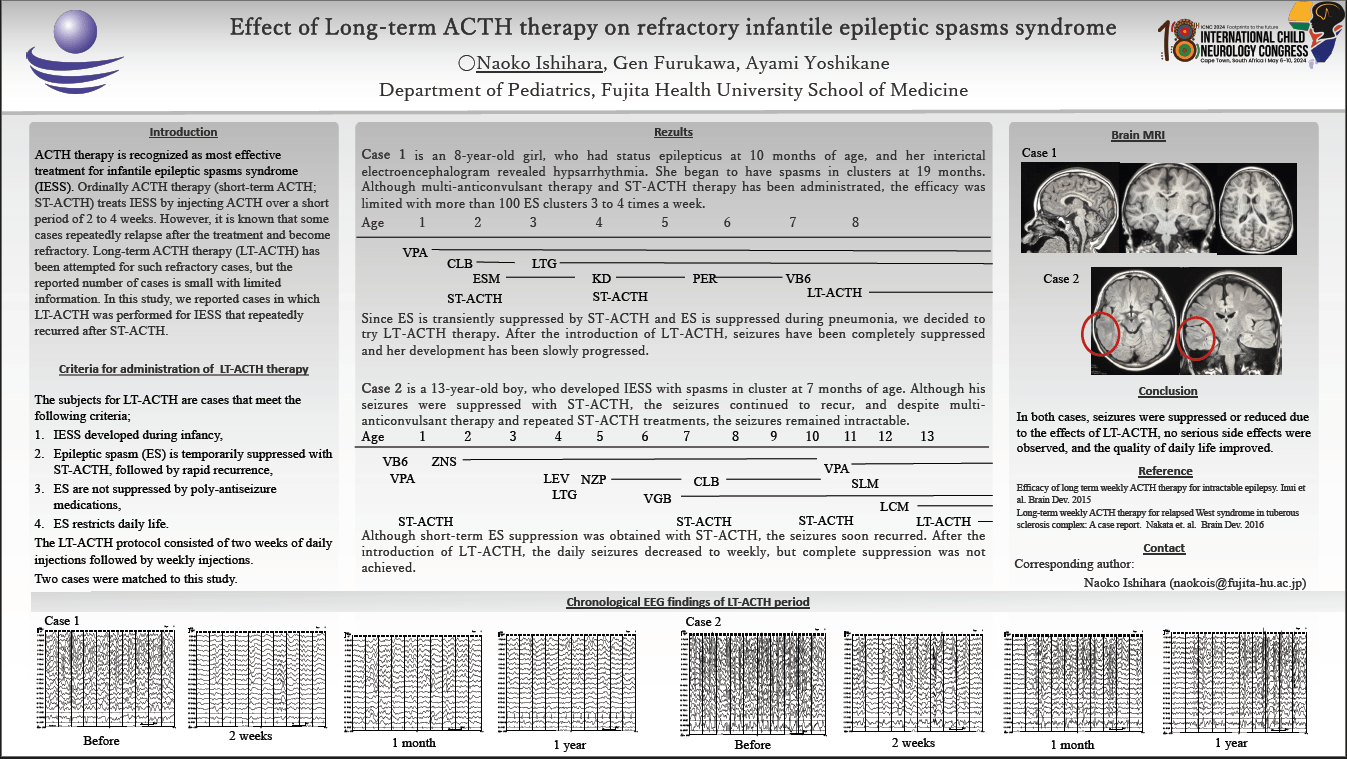Effect Of Long-term ACTH Therapy On Refractory Infantile Epileptic Spasms Syndrome
[Purpose] ACTH therapy is recognized as most effective treatment for infantile epileptic spasms syndrome (IESS). Ordinally ACTH therapy (short-term ACTH; ST-ACTH) treats IESS by injecting ACTH over a short period of 2 to 4 weeks. However, it is known that some cases repeatedly relapse after the treatment and become refractory. Long-term ACTH therapy (LT-ACTH) has been attempted for such refractory cases, but the reported number of cases is small with limited information. In this study, we reported cases in which LT-ACTH was performed for IESS that repeatedly recurred after ST-ACTH. [Patients and Methods] The subjects for LT-ACTH are cases that meet the following criteria; 1. IESS developed during infancy, 2. epileptic spasm (ES) is temporarily suppressed with ST-ACTH, followed by rapid recurrence, 3. ES are not suppressed by poly-antiseizure medications, 4. ES restricts daily life. The LT-ACTH protocol consisted of two weeks of daily injections followed by weekly injections. Two cases were matched to this study. [Result] Case 1 was an 8-year-old girl with clustering of ES consisting of over 100-spasms. After administrating LT-ACTH, ES was completely suppressed with no complications of serious infection. Case 2 was a 13-year-old boy with weekly ES. After administrating of LT-ACTH, seizures decreased within monthly, and the learning ability was improved due to increased alertness during the daytime. [Conclusion] In both cases, seizures were suppressed or reduced due to the effects of LT-ACTH, no serious side effects were observed, and the quality of daily life improved.
Naoko Ishihara
Fujita Health University School of Medicine
Japan
Gen Furukawa
Fujita Health University School of Medicine
Japan
Ayami Yoshikane
Fujita Health University School of Medicine
Japan
